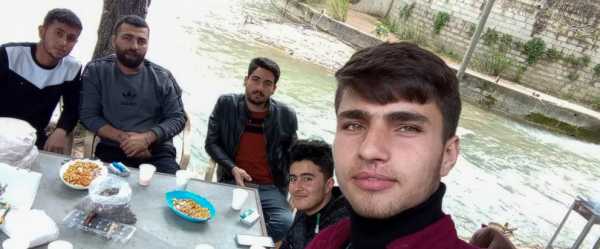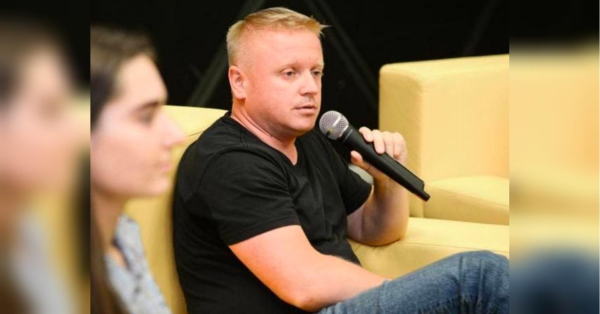
BEIRUT — Seeking to find lives better than they had in their war-scarred town in northeast Syria, four men and a 14-year-old boy from the Sheikhi family set out for Europe.
Ignoring an older relative's warnings, the group boarded a fishing boat from Libya to Italy, where they hoped to start crossing Europe on land and get to Germany.
Instead of docking in Italy, the trawler capsized and sank Wednesday in thousands of feet of seawater 75 kilometers (45 miles) off Greece, close to the deepest part of the Mediterranean. The trawler may have carried as many as 750 passengers. Hundreds remained missing late Thursday. It would be one of the worst Mediterrranean shipwrecks in recent history if officials confirm relatives' worst fears, as expected.
Five members of one family were aboard the trawler, including Ali Sheikhi, 29. The father of three boys, he left behind his wife, and boys — ages 6, 5 and 2 — hoping to one day reunite in Europe and offer the children the good education no longer found at home.
“He wanted to save his children,” said Abdo Sheikhi, 38, Ali's brother.
Abdo Sheikhi reached Germany seven years ago. His five relatives left Kobani, a border town near Turkey, in early March.
Once a symbol of victory against Islamic State militants in 2015, Kobani has been hit by the country’s bitter divisions, and over a decade of war, like much of Syria. With no development, no investment and no sign of peace, many in northeastern Syria are following the footsteps of earlier migrants to Europe but taking much higher risks because Turkey has been tightening its borders and making the land crossing harder.
Many of the Syrians missing were also from Daraa, a region in Syria's southernmost tip, near the border with Jordan.
Abdo Sheikhi's five relatives went through government-controlled Syria into Lebanon. They then flew to Cairo and from there to Tripoli and on land to Tobruk, Libya. Aside from the expenses paid to reach Libya, the five were supposed to pay $6,000 each to the smugglers, money that was to be paid once they reached Italy.
“They were supposed to arrive in three or four days,” Mohamed Abdi Marwan, an uncle, said speaking by phone from Kobani, a Kurdish-majority town. “It was a shock. We had hoped they will get there safely.”
Nine survivors were arrested Thursday on suspicion of being members of the ring that arranged the voyage, the Greek coast guard said. State-run ERT TV said the suspects were all Egyptian nationals.
“In Syria, there are no means for a life,” Abdo Sheikhi said. “Once they decided, I told them the Libya road is very dangerous and very long. They said: others made it. We too will take that road.”
Shahin, another relative of Sheikhi's, who is also a resident of Germany, said he last heard from his relative when he complained about the conditions in waiting in Libya for months. The smugglers wouldn't let them leave the rooms where they were, ostensibly to avoid detection, often confiscated their phones, and would not bring them the food they requested.
“They were seven to a room … They didn't see the sun," said Shahin, who spoke on condition of anonymity in order to not jeopardize his ability to stay in Germany. “They were sad and gripped by despair. But they would not take a decision to go back to Syria."
The men from the Sheikhi family texted relatives late last Thursday to say they would leave in a few hours, on a boat that was supposed to carry 300 people, said the elder Sheikhi.
The family waited for a confirmation photo from Italy. None came.
“The (smugglers) sent the boys to their deaths,” Abdo Sheikhi said.
Hours after rescue operations began, a member of the Sheikhi family thought he spotted Ali in a photo of survivors posted on social media. The man was laying on the floor in a line of others wrapped in blankets in the makeshift camp set up for the passengers. His hand was raised, covering most of his face, except for a distinctive beard. Then came another picture of a man uncovered and sitting up, holding a piece of paper.
There was no sign of other relatives and no way to reach the man on the floor to confirm it is Ali.
The elder Sheikhi, working as an electrician in Germany, said he has called the hospital in Greece to try to get information, with no luck. He was unable to get news from the makeshift camp and is still weighing whether to travel to Greece to look for relatives.
Abdo Sheikhi said the trip to Greece will cost him at least 600 euros and he can’t speak English.
“I will wait till tomorrow. If there are no news, I will have to go," he said. “The problem will be if I go there and it is of no use.”
Sourse: abcnews.go.com






